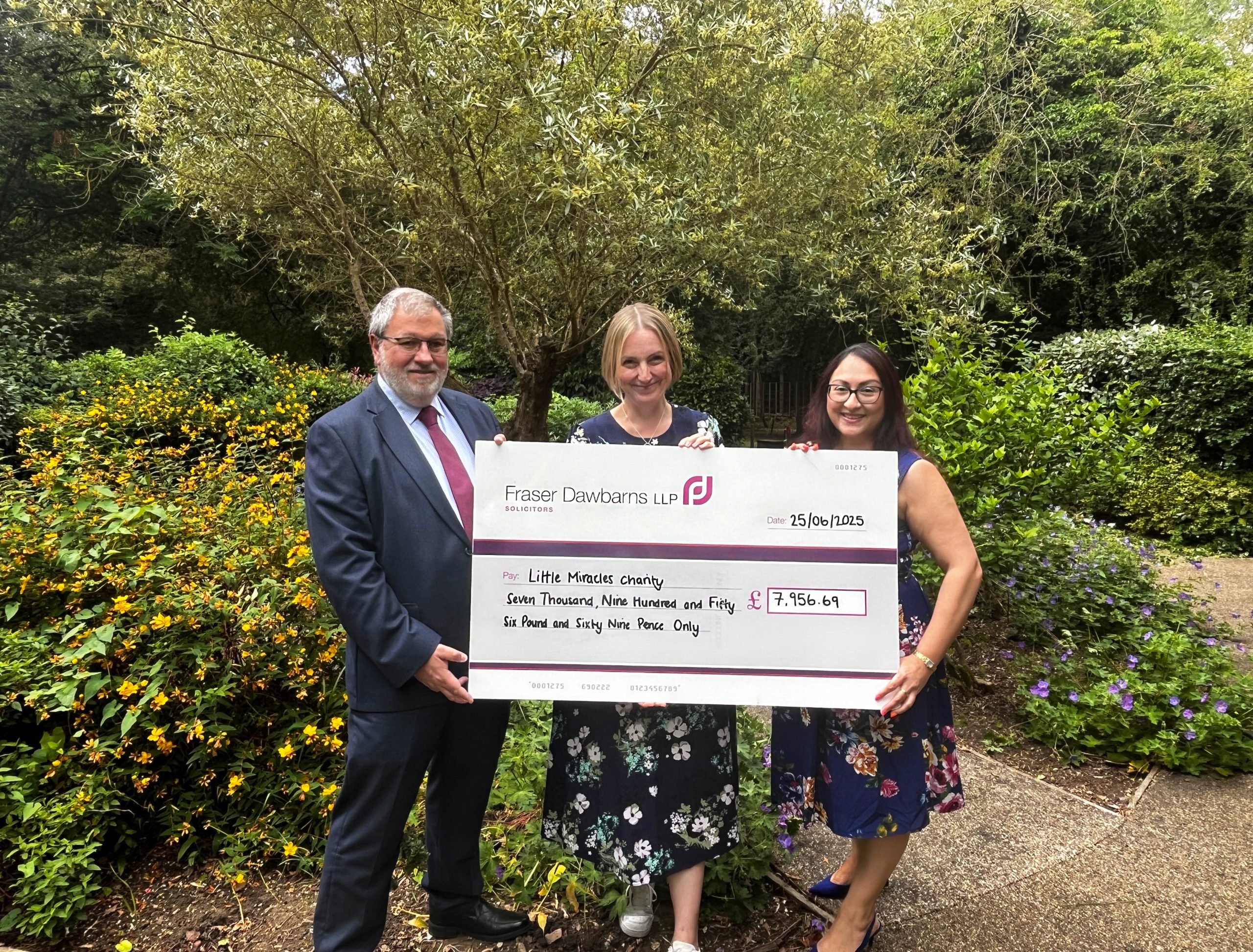How will the 2021 Budget affect you?
After every budget announcement, there is always plenty of information to analyse, some of which only becomes clearer once we have had time to look beyond the headlines to the fine print. For those who want to know how the budget will affect them, but do not have the time or opportunity to go through it to find out specific details, Fraser Dawbarns have highlighted various parts of the budget, relating to areas of specialism of our legal team.
Please be aware that the following article is not a comprehensive analysis of the whole budget, we are focused on specific areas that overlap with our areas of expertise and that may affect our clients.
Conveyancing
Stamp Duty Holiday
The big announcement for many is the extension of the Stamp Duty holiday for home buyers, which is being extended for a further three months until the end of June. Purchases up to £500,000 will continue to be free from the tax – and homes bought up to a value of £250,000 until the end of September. From 1st October 2021 Stamp Duty will be returning to the previous level of £125,000.
This will be a relief to those who are rushing to buy before 31st March 2021 when the window was due to close and to conveyancers trying to ensure existing transactions completed before this date.
Mortgages
The Chancellor also confirmed a new government backed mortgage guarantee scheme for homebuyers who are only able to put forward a 5% deposit. Several large banks including Natwest, Barclays, Santander and Lloyds have already confirmed that they will begin offering these mortgages, starting in April and others will join the scheme later.
Since 95% mortgages have virtually disappeared from the market, this will enable many more people who have been locked out of the property market to get on the housing ladder.
Although measures to keep the housing market strong are always well received, fears are growing over surging house prices. The latest Nationwide house price index in February, showed, have increased by an average of 6.9% over the previous year.
Private Client
Income Tax Thresholds
The threshold at which people pay income tax or move into a new tax bracket will be frozen. The tax-free Personal Allowance will remain at £12,750 until 2026. The higher-rate threshold will increase to £50,270 next year and then be frozen at that level until 2026. This change will mean that many more people will slip into higher tax brackets as their wages rise with inflation.
Thresholds for Inheritance Tax and the tax-free allowance for pensions contributions will also be frozen. Many had expected an increase in Capital Gains Tax rates but this was not mentioned in the budget. This would have kept taxation on the earnings from buying and selling assets in line with taxation on wages.
Savings and Investments
The annual tax-free threshold will remain at £20,000 for Individual Savings Accounts (ISAs) and at £9,000 for junior ISAs.
A ‘Green Savings Bond’ was announced to “give all UK savers the opportunity to take part in the collective effort to tackle climate change”. This should launch in the summer and more details about the scheme are expected soon.
Pensions
The Pensions Lifetime Allowance, which governs how much can be saved before tax charges apply, will be frozen at the current level of £1.073m. This was due to rise to £1.078m from the next tax year. This will only affect a small number of higher earners who have large workplace pensions.
Commercial
Corporation Tax
In April 2023, the rate companies pay on their profits will rise from 19 to 25%. Despite the large increase, the higher rate still leaves the UK with the lowest corporation tax rate in the G7.
Smaller businesses with profits of £50,000 or less will continue paying the lower rate. Companies with profits ranging between £50,000 and £250,000 will pay tax at the main rate but will benefit from a tapered corporation tax rate. Only those making £250,000 or more in profit will pay a higher rate.
VAT and Business Rates Cut
The VAT cut for the hospitality and tourism industries from the standard rate of 20% to 5% is being extended for a further six months until 30th September 2021.
This cut applying to the hospitality industry, hotel and holiday accommodation and certain attractions, affects 150,000 businesses employing 2.4 million people, which have been amongst the hardest hit by the pandemic.
The Chancellor said these businesses “need our support” to protect jobs as the coronavirus restrictions are eased and they allowed to reopen as the national lockdown is lifted.
The hospitality and leisure businesses will pay no business rates for three months and then one third of their normal rate for the final nine months of the year.
Business Support
Restart Grants
£5bn of “restart grants” will be available from April aimed at helping businesses to reopen. Non-essential retail businesses will open first and will be eligible to apply for grants of up to £6,000 per premises. Hospitality and leisure businesses, including personal care and gyms, will open later and will be eligible to apply for grants of up to £18,000.
Business Loans
New government backed loans will be launched to replace the Bounce Back Loan (BBL) and Coronavirus Business Interruption Loan Scheme (CBILS) that are both ending this year. Businesses can apply for loans of between £10,000 and £25m through participating lenders. Loans will be backed up to 80% by the government as CBILS are currently.
Employment Law
Furlough
More than 700,000 people have lost their jobs since March 2020 and the economy went through its worst contraction in more than 300 years.
The Coronavirus Job Retention Scheme will continue until 30 September 2021 with furloughed workers receiving 80% of their pay for hours that they do not work. Starting in July, employers must pay 10% of wages for those hours and in August they must contribute 20%.
As the furlough scheme is currently supporting around 4 million UK workers, an extension until September 2021, when the worst of the pandemic will hopefully be behind us can only be a good thing for jobs and the economy.
Self-employed
A new round of grants will be made available for the self-employed. The fourth grant will cover February, March and April 2021 at a rate of 80% of previous trading profits. More than 600,000 people who recently became self-employed had previously been excluded from claiming grants are now eligible to apply for the new round, provided they have filed a tax return for 2019/20.
A fifth grant will be available from May 2021. Self-employed people whose trading profits have fallen by 30% will be able to claim a grant of 80% of previous earnings. Those whose income has been less affected can apply for a grant of 30%.
Minimum Wage
The minimum wage will be rising to £8.91 per hour in April 2021, equivalent to an increase of £350 a year for a full-time worker. The age at which a worker is entitled to the full minimum wage will be lowered from 25 to 23.
For 18 to 20 year olds, the legal minimum rises from £6.45 to £6.56 while for 21 to 22 year olds it will increase from £8.20 to £8.36.
Peace of mind through difficult times
At Fraser Dawbarns, we have departments offering a wide range of expertise to help you to understand how the new measures will affect you. If you are concerned by anything you have heard in the budget announcement, please contact Fraser Dawbarns for detailed advice on your specific circumstances.
Find out more about our Residential Conveyancing services
Find out more about our Wealth Management services
Find out more about our Corporate Law services
Find out more about our Employment Services for employees
Find out more about our Employment Services for employers
This article aims to supply general information, but it is not intended to constitute advice. Every effort is made to ensure that the law referred to is correct at the date of publication and to avoid any statement which may mislead. However, no duty of care is assumed to any person and no liability is accepted for any omission or inaccuracy. Always seek advice specific to your own circumstances. Fraser Dawbarns LLP are always happy to provide such advice.
Related Articles
Recommended By The Legal 500 Directory*
*We are recommended for the following practice areas: Corporate and Commercial, Debt Recovery, Employment, Personal Injury: Claimant, Agriculture and Estates, Contentious Trusts and Probate, Family, Personal Tax, Trusts and Probate & Commercial Property.
ServicesContact
















